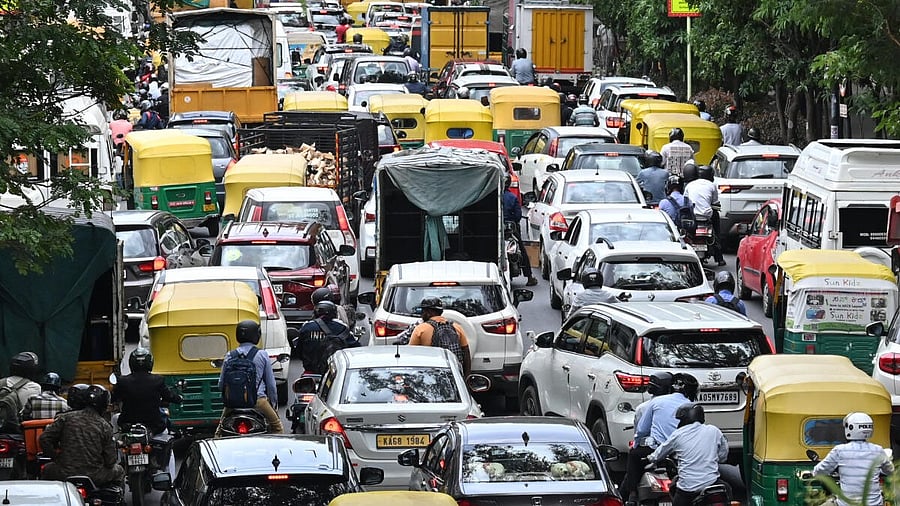
Traffic jam near Residency Road in Bengaluru
Credit: DH File Photo
Bengaluru: Nearly 70 per cent of traffic congestion on Bengaluru's streets is caused by vehicle breakdowns, of which BMTC buses account for 40 per cent, an expert said at a knowledge session on 'Building and managing urban transport networks' on Monday.
Venkat Chandru, Director of ASTraM (Actionable Intelligence for Sustainable Traffic Management), said some buses break down every alternate week. While the BMTC has acknowledged the issue, he suggested deploying these buses only during non-peak hours or on low-demand routes.
The panel discussed the importance of making mobility decisions based on clear data and through a participatory process.
Meera K of 'Save Our Sarjapur Road' said it was heartening that ordinary citizens in Bengaluru were thinking about how our streets function but expressed caution that most public infrastructure projects were still being designed to fail.
Speaking about the hazard of living amid traffic congestion, she wondered whether citizens really wanted to live in choked neighbourhoods.
Naresh Narasimhan, architect and urban designer, highlighted structural problems in town planning and said the idea of preparing a masterplan to guide a city's growth had become obsolete. "What we need instead is a service plan," he stated and stressed that the future of a city will not be about vertical growth, but providing connections.
Bicycle Mayor Sathyanarayanan Sankaran lamented the quality of bureaucracy in Bengaluru and pointed out that most mobility decisions were being made without any connection to the ground reality.
WRI India CEO Madhav Pai, KReate Foundation Founder Gayatri Kuppendra Reddy, and Electronics City Industries Association (ELCIA) Sustainability Head Soumya Venkatesh were other members of the panel moderated by Srinivas Alavilli, Fellow at WRI India.
During a presentation earlier, Pai noted that the average trip in Bengaluru is 9 km and takes 55 minutes, and underscored the need to solve structural issues.
